Besides its scenic beauty, Phu Quoc boasts a rich marine ecosystem, home to fascinating creatures like the dugong. This animal is shrouded in captivating myths and possesses unique characteristics that intrigue visitors. Join KK2Trip as we delve into the world of dugongs!
Myths Surrounding Phu Quoc Dugongs
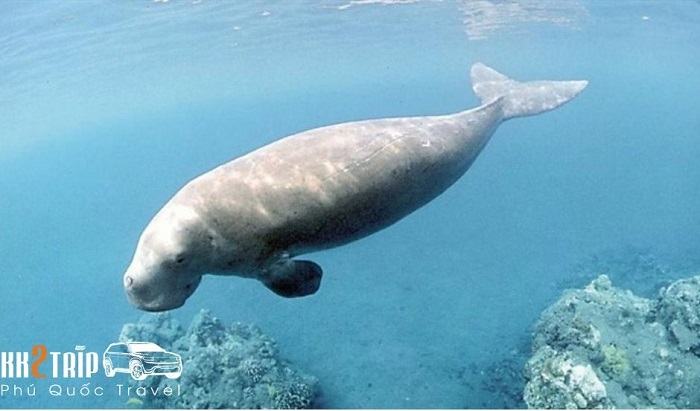
Dugongs, also known as sea cows, are often likened to mermaids in local legends. This mythical association sparks curiosity among tourists, eager to learn more about these intriguing creatures. Their unique appearance and captivating behaviour have earned them the endearing nickname, “people of the sea”. Scientifically known as Dugong dugon, these marine mammals belong to the Sirenia order. Adult dugongs can reach impressive sizes, growing up to 3 metres long and weighing over 450 kilograms. They primarily feed on seagrass and other marine vegetation. Their large size makes them susceptible to entanglement in fishing nets. The enduring legend of the mermaid surrounding dugongs further enhances their allure and fascination.
Where Do Phu Quoc Dugongs Live?
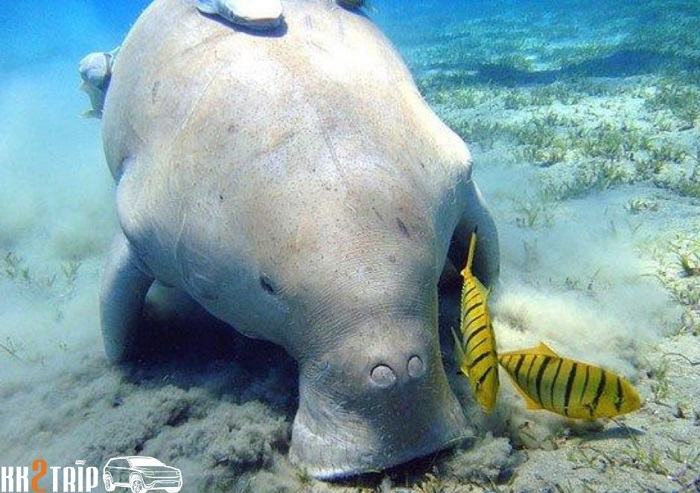
Dugongs inhabit warm coastal waters, primarily in tropical and subtropical regions of the Indian and Pacific Oceans. They are found in over 37 countries, with their distribution generally limited between 26 degrees North and South latitude. Australia’s Torres Strait is a significant dugong habitat, home to over 10,000 individuals. In Vietnam, dugongs were once found in the waters around Con Dao and Phu Quoc. However, pollution in the late 1990s led to a drastic decline in their population. By 2000, only around 10 dugongs remained in Con Dao, and fewer than 100 in Phu Quoc.
Characteristics of Phu Quoc Dugongs
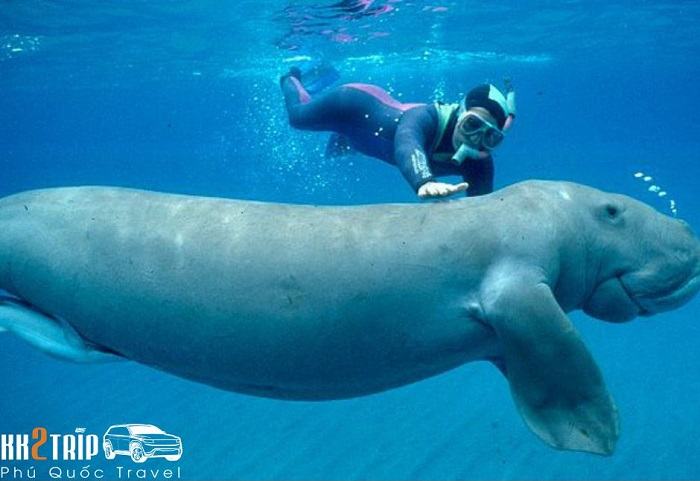
Dugongs have a distinctive fusiform body shape, with a horizontal fluke (tail fin) unlike the vertical tails of most fish. Their forelimbs are paddle-like flippers, used for steering and cradling their young while nursing, contributing to their “mermaid” moniker. Their thick, grey skin is sparsely covered in hair, and a layer of blubber provides insulation. They have large heads relative to their body size, poor eyesight, but a keen sense of smell. Their thick lips are covered in bristly hairs, used to grasp seagrass from the seabed. Males sometimes develop tusk-like teeth. Dugongs possess broad, flat molars well-suited for grinding seagrass. Their herbivorous diet necessitates a long digestive system (45 metres) for maximum nutrient absorption. Their stomach resembles that of a cow, suggesting their terrestrial ancestry before adapting to a marine lifestyle. Adult dugongs typically weigh between 250 and 300 kilograms, with some reaching up to 1,600 kilograms. Males measure 2.5 to 3.15 metres long (with some reaching 5.83 metres), while females are slightly smaller, averaging 2.40 to 3.00 metres.
Are Phu Quoc Dugongs Endangered?
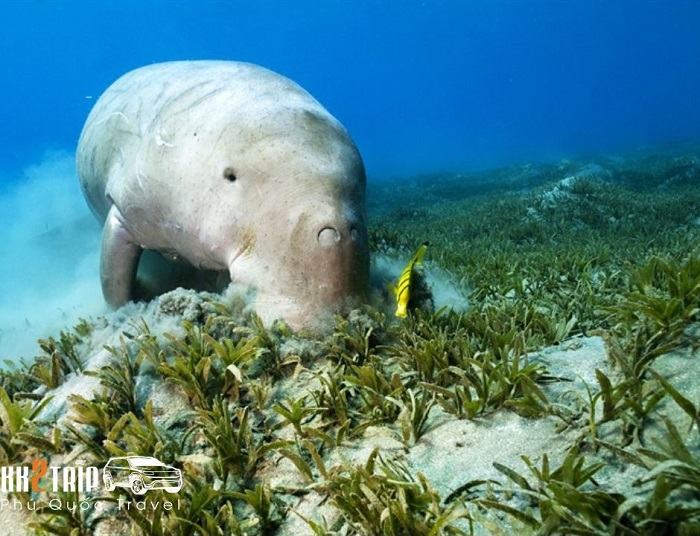
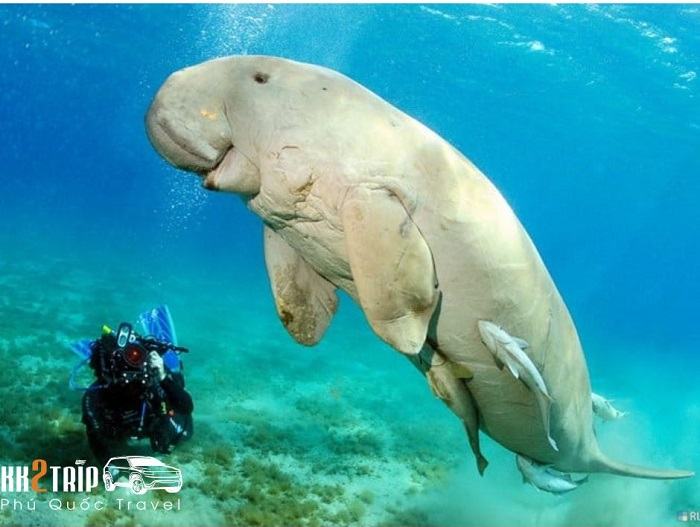
Dugongs typically stay submerged for about 15 minutes before surfacing to breathe. Their slow swimming speed makes them vulnerable to entanglement in fishing nets, often leading to accidental death. The high demand and price for dugong meat and body parts have fueled relentless hunting, driving down their numbers. A pair of dugong tusks can fetch up to 90 million VND. Dugong meat remains a sought-after delicacy among affluent consumers. Skinless dugong meat sells for 300,000 to 500,000 VND per kilogram, while meat with skin can reach 1,500,000 VND per kilogram. According to local fishermen, dugongs have become extremely rare in the waters around Phu Quoc. Consequently, the government has implemented a ban on hunting dugongs, recognizing their endangered status and the urgent need for conservation. Dugongs are fascinating creatures deserving of protection. Although their numbers have dwindled due to threats, they continue to captivate visitors to Phu Quoc Island. Let’s join KK2Trip in safeguarding these “mermaids” of the sea. Remember, KK2TRIP is your trusted travel companion in Phu Quoc, offering a large fleet of modern vehicles ranging from 4 to 45 seats. Our experienced drivers ensure a comfortable and enjoyable journey, even for those prone to motion sickness. If you need reliable transportation in Phu Quoc, book your vehicle with KK2TRIP. Contact us at: KK2TRIP Co., Ltd. – Address: 118 Tran Hung Dao Street, Phu Quoc
- Hotline: 0816 667 118
- Email: nguyennam1994pq@gmail.com
- Website: kk2trip.com


 Tiếng Việt
Tiếng Việt